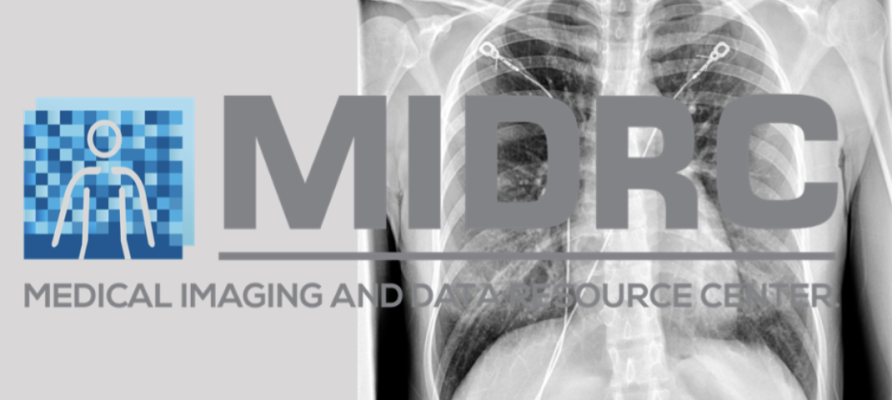
June 21, 2022 — After less than two years of data collection and processing, the Radiological Society of North America (RSNA) has successfully delivered over 30,000 de-identified imaging exams to the Medical Imaging and Data Resource Center (MIDRC), an open-access platform which publishes data to be used for research.
The RSNA contribution includes COVID-19 patient chest X-ray and CT images solicited from sites around the world. Each image dataset contains patient demographics and is accompanied by relevant clinical data points including hospital and ICU admission and discharge, as well as breathing support provided.
“RSNA is delighted to collaborate on the development of MIDRC,” said Curtis P. Langlotz, M.D., Ph.D., RSNA Board liaison for information technology and annual meeting and professor of radiology and biomedical informatics, director of the Center for Artificial Intelligence in Medicine and Imaging and associate chair for information systems in the Department of Radiology at Stanford University. “MIDRC is a massive, curated, diverse, multi-institutional imaging dataset that enables new insights about the diagnosis and prediction of COVID-19 infection, its complications and its outcomes. From the release of the first set of images to today, we are realizing the benefits of new algorithms and the resulting innovations in machine learning.”
MIDRC organizers recently announced that funding will be available for year three. Interested institutions are encouraged to review the necessary steps to participate in this initiative.
Members of the medical community can attend MIDRC virtual seminars scheduled on the third Tuesday of every month at 2:00 p.m. CT. The seminar series offers an opportunity to hear directly from the MIDRC team and features research presentations from MIDRC investigators on new and noteworthy advances. Sessions are held online and include live Q&A for all attendees. The next seminar will take place on June 21.


 February 06, 2026
February 06, 2026 









